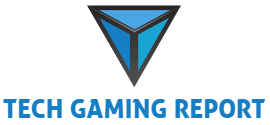Vishing, also known as voice phishing, involves deceptive phone calls aimed at deceiving individuals into divulging personal information or providing funds. The scam has extended its reach into the realm of online gaming, posing a growing concern for both gamers and gaming platforms. It exploits the trust and enthusiasm of players who engage in virtual environments.
In iGaming, vishing scams exploit players’ emotions for big wins, virtual currency, or rare bonuses. Scammers may impersonate game developers, customer support representatives, or even fellow players to create a false sense of legitimacy, tricking them into divulging sensitive information or making unauthorized transactions.
Emerging Vishing Concern in South America
The increasing concern regarding vishing in South America has become a cause for alarm recently, emphasizing the need for enhanced fraud prevention for online gambling operators in South America.
Factors contributing to the rise of vishing in the region include technological advancements, limited awareness, language and cultural familiarity, economic disparities, and a less stringent regulatory environment. In fact, Latin America loses around 20% of its total revenue due to fraud, ranking it the second highest region globally in revenue loss after South-East Asia.
Vishing attacks involving scammers impersonating tech giants like Apple, Microsoft, and Google are increasing. They typically ask for personal info like email addresses under the guise of “software updates,” which turn out to be malware.
Bank impersonation scams are also on the rise, with fraudsters pretending to be credit card firms or banks to get account details by citing suspicious activity.
Loan and investment scams are also at an alarming level as they promise unrealistically high returns or speedy debt payoffs. Staying cautious and informed about such tactics is crucial in thwarting these vishing scams, especially for vulnerable populations like seniors.
Combating Voice Phishing in iGaming
Vishing scams are becoming increasingly common in the iGaming industry as more people gamble online. It is a lucrative market for scammers, who prey on people’s hopes of winning big.
Just like any other online gambling fraud, it is not limited to a specific type of game or platform. It can occur in any form of online gambling, from online casino games to sports betting and lottery games.
iGaming platforms and players can guard against vishing scams by knowing common tactics used by vishing scammers. For example, they might claim that an online casino account has been compromised, a gift code worth of millions is available for purchase, or a bonus prize awaits the player.
Then, platforms can enforce two-factor authentication on players’ accounts. It adds an extra layer of security by requiring players to enter a code from their phone in addition to their password when logging in.
Using secure communication channels is also no less important. iGaming platforms should only communicate with players through secure channels, such as email or text messages. At the same time, platforms need to monitor any suspicious activities. A few examples include multiple suspicious login attempts or large withdrawals.
Some additional tips for gamblers to combat vishing are to never give out your personal or financial information over the phone, be suspicious of any caller who asks you to provide personal information, and never click on links or download attachments from suspicious emails or text messages.
Don’t forget to always gamble or place bets only on legitimate games available on legitimate websites or platforms.
Dealing with this issue requires educational campaigns and collaborative efforts between governments and law enforcement to catch scammers and enforce stricter regulations. Overall, staying vigilant, promoting education, and taking proactive measures are crucial for safeguarding individuals from vishing scams in South America’s online gambling industry.

Infuriatingly humble organizer. Entrepreneur. Zombie guru. Professional creator. Future teen idol.
